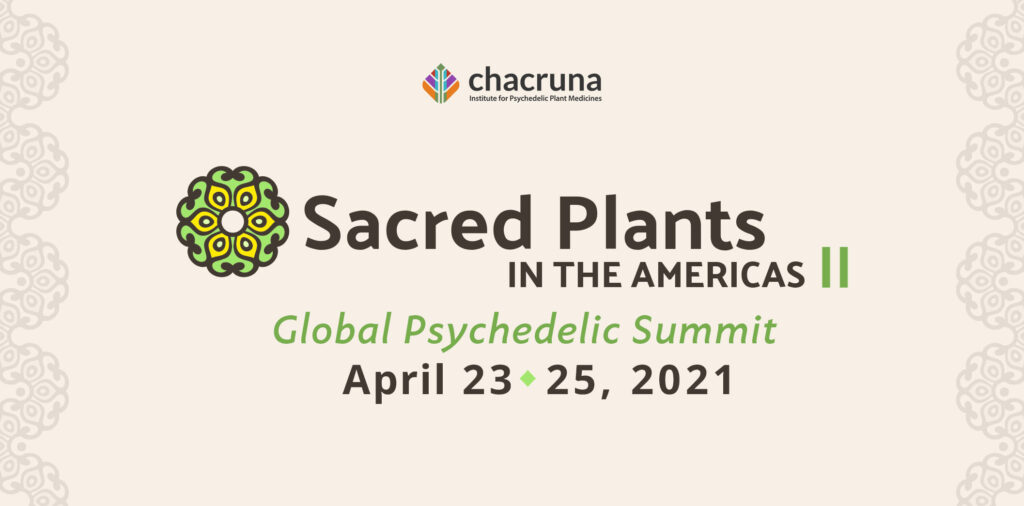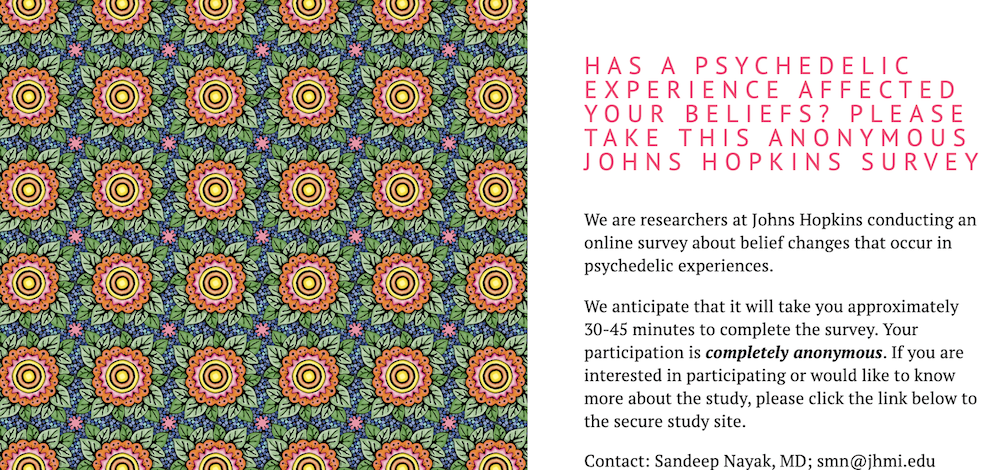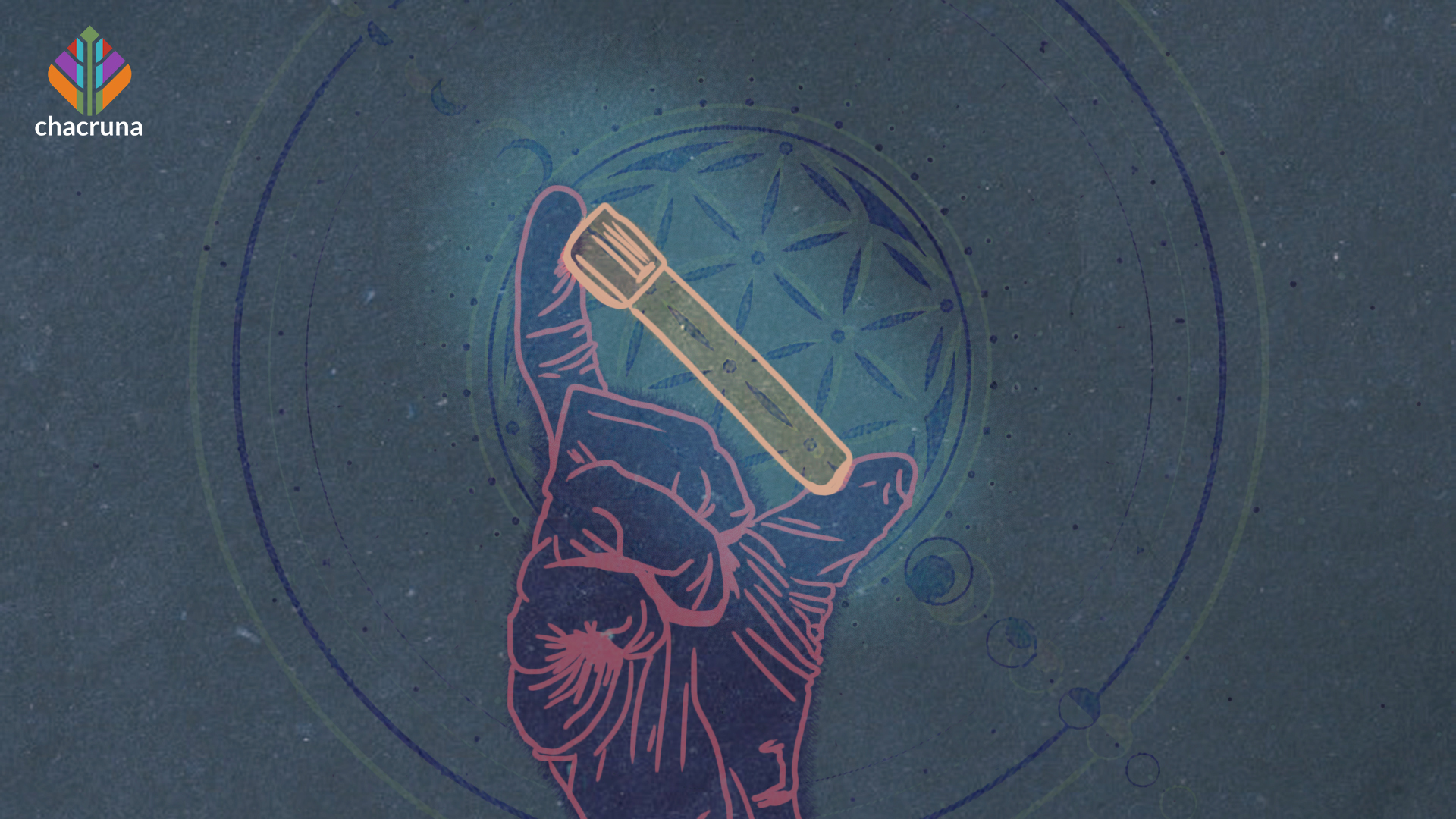- After 2024, the Scenario for Psychedelic Therapies Can Only Improve - January 16, 2025
- Symposium in Brazil Debates Psychedelics at a Political Crossroads - December 13, 2024
- Conference in Rio Defends Psychedelics in Public Health - December 11, 2024
A trip induced by LSD or the psilocybin of magic mushrooms can be a disturbing experience. More than a few consumers of these substances report achieving closer contact with some god. Some say these drugs can convert atheists into believers or soften the heart of even the most hardened conservative. But it may be best to go slowly with the mystic aura, since psychedelics are unpredictable things.
The discussion was reopened by the bioethicist Eddie Jacobs in the magazine Scientific American, under the provocative title, “What if a pill can change your politics or religious beliefs?” He warns that the association between psychotherapeutic potential and religious epiphany may do little to improve the image of psychedelic substances.

the labels of “mysticism” and “pacificism” were applied to LSD by the countercultural movement and attained messianic proportions with the preachings of Timothy Leary.
Indeed, worrying precedents exist. The labels of “mysticism” and “pacificism” were applied to LSD by the countercultural movement and attained messianic proportions with the preachings of Timothy Leary. Transformative trips would save the world, one person at a time, and the more people who took the drug, the better.
The prohibitionist reaction in the 1970s quashed these dreams. But it also banished—or, almost—scientific research that had also been taking off, using these compounds to treat mental disturbances like depression and alcoholism. Their initial flight aborted, they are now struggling to return to the skies of normal science. Turbulence appears on Jacobs’s radar, stirred up by strong conservative winds.
for psychedelics to eventually flourish as authorized treatments for depression, for example, which may happen in the US with psilocybin in a few years, they need to be removed from the list of illegal substances
For psychedelics to eventually flourish as authorized treatments for depression, for example, which may happen in the US with psilocybin in a few years, they need to be removed from the list of illegal substances, or at least become regulated as aids in psychotherapy, a process already begun in the state of Oregon. Ultraconservative Republicans and religious zealots alarmed by the risk of new antidepressants becoming an Antifa or atheist elixir may create serious obstacles to this crusade. Matthew Johnson and David Yaden, from the Center for Psychedelic and Consciousness Research at Johns Hopkins University (JHU), were quick to dispel the threatening connection. They published their response in the same magazine: “There’s no good evidence that psychedelics can change your politics or religion”
It so happens that much of the impetus for associating psilocybin with mysticism came from the group at JHU that gave rise to the Center for Psychedelic and Consciousness Research. More precisely, the pioneering work of Roland Griffiths, who, in 2006, published a study on the spiritual significance of the kind of mystical experiences triggered by the psychoactive compound of Psilocybe mushrooms.

Another study, this time by Robin Carhart-Harris’s group at Imperial College London, investigated the increase in identification with nature and the decrease in authoritarian political views among participants of a preliminary study on psilocybin as a treatment for depression. Standardized questionnaires measured the person’s level of adherence to these values, but among a group of just seven volunteers, which suggests that no grand conclusions should be drawn from this data.
there is a strong whiff of confirmation bias at work. Conservative people are less likely to take psychedelics or participate in such studies.
In addition to the limitations intrinsic to this type of investigation, there is a strong whiff of confirmation bias at work. Conservative people are less likely to take psychedelics or participate in such studies. It also seems more likely that the volunteers had prior experiences with these illegal drugs or at least belong to groups willing to confront risks in order to have meaningful spiritual experiences.
Furthermore, the call for participants for these kinds of studies actively selects this profile. Out of curiosity, the other day, I decided to fill out an online research form on the JHU website about changes in beliefs caused by psychedelic experiences. From the beginning, the respondent is excluded if they reply “no” to a question on whether they have experienced the kind of belief change attributed to the drug.

The difficulty resides in how to interpret the word “change” in the expression “belief change,” the admission of which is a prerequisite for continuing the survey. In the way the online questionnaire is structured, the participant will be able to go ahead only if she or he has had a profound change, one that, in my interpretation, would qualify as a “reversal,” or “displacement,” of religious, ethical or political values and beliefs, such as becoming less conservative or turning into a believer in god. Warned by another volunteer who had been immediately disqualified for being candid and replied she had experienced no such deep change, I forced my hand a bit and decided that “intensification” of previous values would fit the concept of change.
I was an atheist before taking psychedelics and I remained the same afterwards.
I was an atheist before taking psychedelics and I remained the same afterwards. My political orientation was based on values like social justice, human rights, individual freedoms, and environmental conservation—and none of this changed, only intensified as a result of experimenting with psychedelics, which enhanced my ability to be empathetic. On the other hand, taking ayahuasca, LSD, MDMA, and psilocybin led to some deep spiritual experiences. Note: “spiritual,” not mystical nor religious. The results helped me understand why psychedelics have such a therapeutic potential.
The pleasure of being in contact with nature and able to admire the beauty of a bird deepened almost to a state of grace. Communion with the pain of people who were not even close friends led me to tears. Family connections strengthened, the fear of death receded, sickness ceased to be seen as a malevolent injustice.
Understandably, this reconnection with things greater than the ego—nature, humanity, fellow humans—is felt by some people as a mystical experience. But it is not compulsory to attribute the status of external reality to what is experienced in the psyche. The key seems to be in the increased empathy of which everyone is capable, and for this, it is unnecessary to believe that love of one’s neighbor is a divine commandment.
Sign up for our newsletter
I doubt that a conservative or a believer will cease to be so after taking LSD or eating “magic” mushrooms. It seems more probable that the experience will revive generous feelings that have become ossified by prohibitions and authoritarian commands. Creating cerebral connections and opening pathways to new thoughts will do no harm to anyone.
the medical promise of psychedelics can only gain by discarding the mysticism and the messianic pretensions. They are not necessary ingredients, and there is no solid scientific basis for the connection.
All things considered, the medical promise of psychedelics can only gain by discarding the mysticism and the messianic pretensions. They are not necessary ingredients, and there is no solid scientific basis for the connection.
Art by Mariom Luna.
—
This text appeared originally in the blog Virada Psicodélica, published in Portuguese by the daily newspaper Folha de S.Paulo. This translation appears with permission of the publisher.
Take a minute to browse our stock:
Did you enjoy reading this article?
Please support Chacruna's work by donating to us. We are an independent organization and we offer free education and advocacy for psychedelic plant medicines. We are a team of dedicated volunteers!
Can you help Chacruna advance cultural understanding around these substances?














